After four days confined to a tiny isolation room at the Infectious Diseases Clinical Hospital in Lviv, British citizen Jonathan Rainey told senior medical staff there he would feel safer and healthier anywhere else.
He left the 410-bed hospital and resumed self-isolation at home.
The former army medic, who called an ambulance for himself on March 20 when his coronavirus symptoms worsened, spoke with the Kyiv Post throughout his four-day hospitalization.
Rainey praised the hospital medical staff in Lviv, the city of 720,000 people located 540 kilometers west of Kyiv.
He said they were diligent, caring and professional. But they were also overworked, poorly supplied, and overwhelmed by suspected cases of the COVID‑19 disease, which has so far claimed more than 22,000 lives worldwide as of March 26.
The Kyiv Post made five attempts to speak with hospital staff in Lviv on the phone, but all of the calls went unanswered. A supervising doctor at the hospital, reached on her cellphone, declined to comment.
In a March 25 interview with Galinfo.com.ua, a Lviv regional news outlet, chief medical officer Serhiy Fedorenko said his hospital had 44 patients with suspected coronavirus, with two of them in intensive care. Lviv also has more COVID-19 outpatients, he said, without specifying the number.
Fedorenko also said that, so far, the hospital was coping. He said they have a “small amount” of tests for COVID-19, a “certain amount” of medicines and were awaiting more. He said they have enough protective equipment for staff. The hospital has working x-ray and ultrasound, Fedorenko said, but he didn’t mention oxygen and intubation units.
But Rainey recounts a nighmarish stay. If his experience is typical, he says that Ukraine is facing a public health catastrophe if the situation does not rapidly improve. Other health experts, speaking about the general state of national preparedness and not the Lviv hospital specifically, agree.
Contagion spreading
Ukraine had 196 confirmed cases of the infection as of March 26, resulting in five deaths. But a lack of testing across the country hampers the fight and harms the nation’s ability to know the true extent of infections.
Only some 900 tests have been conducted by a single laboratory in the capital. The situation has prompted experts to say that the number of infections is unknown and likely to rise.
Rainey, a 44-year-old resident of Lviv since 2014, has experience as a triage medic in the military and previously worked with the European Union and multiple NGOs. He now works in Ukraine for a company analyzing social data and health policy.
He said his hospital ward was unsanitary and that overburdened staff were unable to properly clean or maintain it.
“This evening I’m actually scared to be here,” he wrote in one message to the Kyiv Post. “I cleaned my room after the cleaner did, using baby wipes… she just mopped the entire ward, with the same mop and bucket of water.”
His hospital ward was often without soap, only had a trickle of hot water, and ran out of basic items like toilet paper and sanitizer liquid, he said.
Similar complaints have been made about other hospitals in other cities.
Ukrainian member of parliament Sergey Shakhov, hospitalized in Kyiv with COVID‑19, said on March 23 that his hospital was becoming overwhelmed: “The hospital… is overflowing with coronavirus patients,” he said in an interview with Channel 24. “I feel sorry for the nurses and doctors because they work like this every day.”
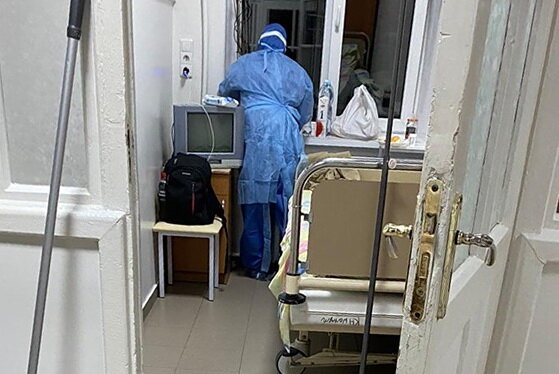
Unsanitary conditions
In Lviv, Rainey said he knew of at least eight other patients in isolation rooms on his corridor, all suspected of coronavirus, and estimated that between 40 and 50 patients were on the entire floor of the hospital.
Patients are required to share a toilet and shower, he said, as well as share a table of food and bottled water that’s left in the hallway.
“Shower and toilets are rotten. Dirty to the point I’m using baby wipes to wash myself,” he said. “I’m urinating into a bottle… because there are health risks going to the dirty bathroom that other patients are using,” he said, fearful of the risk of cross-contamination between patients.
“This is why I refuse to eat the food,” he said in another message, with an attached photo of a table of uncovered soups, salads, bread and one six-liter bottle of water out in the hospital corridor for sharing among patients.
“This is an infectious disease ward, with food left uncovered on tables for patients to come out of isolation one at a time to collect,” he wrote, adding that many patients were using the delivery service Glovo to get food and other basic items delivered.
Former Ukrainian lawmaker from Lviv, Volodymyr Omelyan, infrastructure minister from 2016–2019, said Ukrainian hospitals were “completely not ready” for COVID‑19 and that officials needed to urgently act.
“It is not only about Lviv,” he said. “This is a typical picture for Ukraine as a whole I’m afraid. I don’t believe if you go to Kharkiv or Dnipro… that the picture is any better.”
“I believe that there are hundreds of thousands of cases in Ukraine, but because of the absence of testing, we cannot detect it,” Omelyan said. “They (Ukrainian authorities) reacted too late. When the whole world was in crisis, and everyone was aware of the situation in China, and it spread to Italy, we were simply waiting for some miracle… that this threat would avoid Ukraine.”
Volodymyr Kurpita, head of the Center for Public Health, Ukraine’s state health-monitoring body, told the Kyiv Post that healthcare workers are ill-equipped for the challenge ahead of them.
“We see a catastrophic lack of personal protective equipment in hospitals,” he said.
“It can have serious consequences… for instance infected medical workers, such as the cases in Ivano Frankivsk,” Kurpita said, adding that hospitals and laboratories were also not being properly equipped to quickly test for COVID‑19.
“Providing the test kits for hospitals and lab centers is not enough,” he said.
Hospitals unprepared
Sick since March 13 and hospitalized with suspected coronavirus seven days later, Rainey was desperate to discharge himself by March 24. His symptoms had subsided and he demanded to leave, even involving a lawyer to help him get out of the hospital that he thinks is becoming a breeding ground for the virus.
“I was trying all week to get a COVID‑19 test… Doctors can’t test as they don’t have test capabilities,” he told the Kyiv Post.
Beyond basic missing supplies like soap and sanitizer, Rainey, who has worked on humanitarian missions for the United Nations, also observed a distinct lack of modern equipment, including digital thermometers, oxygen tanks and intubator units for lung ventilation.
“I haven’t seen a single oxygen tank or intubation unit here… and I haven’t seen a piece of digital equipment, except for the electrocardiogram machine,” he said.
Omelyan said “the doctors and nurses are highly qualified and highly motivated… but if we talk about hospitals themselves, or equipment, it’s a great challenge. They’re not very modernized.”
Rainey sent his final message before the hospital agreed to discharge him on March 24: “The hospital is very busy. Worryingly so. I can see they are fearful. They know what’s coming and I sensed… the staff are really hoping for help.”
Health ministry response
Artem Degtyarenko, spokesperson for the Ukrainian health minister and ministry, told the Kyiv Post that Ukraine had failed to stop the COVID‑19 pandemic from entering the country and was now moving to the second phase of its coronavirus strategy: delay the spread.
“We understand that the situation is probably going to get worse and worse,” Degtyarenko said.
“Now we have cases where Ukrainians are infecting Ukrainiains,” he said, before elaborating on the vertical chain of command measures that the health ministry was putting in place. He affirmed that the “government is doing its best” to get more medicine and testing kits to every hospital.
The country has at least 12,000 available beds for the sick, he claimed, and Ukraine is relying on its international partners and Ukrainian producers for more of the medical equipment and supplies that it needs.
“We are getting ready for a bad scenario… we need to help people understand that the problem is big, and in order to conquer the virus we need to unite our efforts… and it is desirable for people to stay home and listen to all the health ministry advice.”
Supply, staff readiness
Dr. Sergei Dubrov is president of the Association of Anesthesiologists of Ukraine and an expert on intensive care unit (ICU) medicine and emergency departments. He said it’s critical to delay the spread of COVID‑19 and that staffing shortages soon could become a problem.
“We don’t yet know how many cases we will get in Ukraine. If we have as many cases as Italy — no country in the world can be ready for this situation… if we have less than 10 or 20,000 cases, we can be ready,” he said, adding that Ukraine currently has no COVID‑19 patients in the ICU.
“We don’t know how many will need the ICU, and I think there will be a problem with (the amount of) ICU nursing staff, and anesthesiologists. In some regions.”
As for equipment, Ukrainian Chief State Sanitary Dr. Viktor Liashko says that Ukraine has 3,500 intubation units and 15 life-support machines. Liashko did not respond to multiple requests for an interview.
In comparison, Germany has 25,000 intubation units and just ordered 10,000 more.
Sick system
Dr. Ulana Suprun, a Ukrainian-American physician who served as acting health minister from 2016–2019, told the Kyiv Post that Ukrainian hospitals are still badly funded and ill-equipped.
“There is not enough financing and financing is not going to the right place,” she said. “It should be going where the patient goes… There has been no reform done at that level (the hospitals),” Suprun said.
“Hospitals are in bad shape… no reform has been done at that level for 28 years of independence and also for 70 years before that,” Suprun said.
She said her team focused on reforming primary healthcare — family doctors — while hospitals still need systemic upgrades. “The change will happen only after the financing reform has happened,” she said.
Suprun says that Ukraine should be following the examples of countries that have best handled the COVID‑19 pandemic so far: “Two very successful countries… that have a very low mortality rate, are Germany and South Korea. They test a lot of people and isolate those who can pass the disease to others,” she said.
As for Rainey, he says his symptoms have more or less subsided, to the point where he is planning his next step: “I’ll self isolate until Sunday, then volunteer with the Red Cross,” he said.
Kyiv Post staff writer Daryna Antoniuk contributed to this story.
You can also highlight the text and press Ctrl + Enter


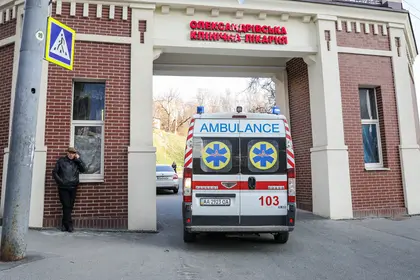
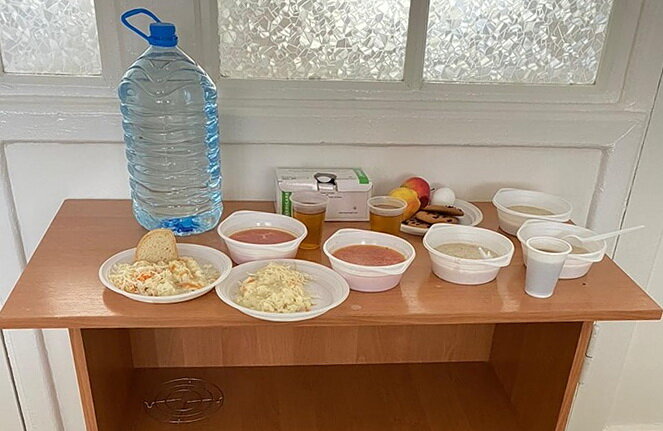



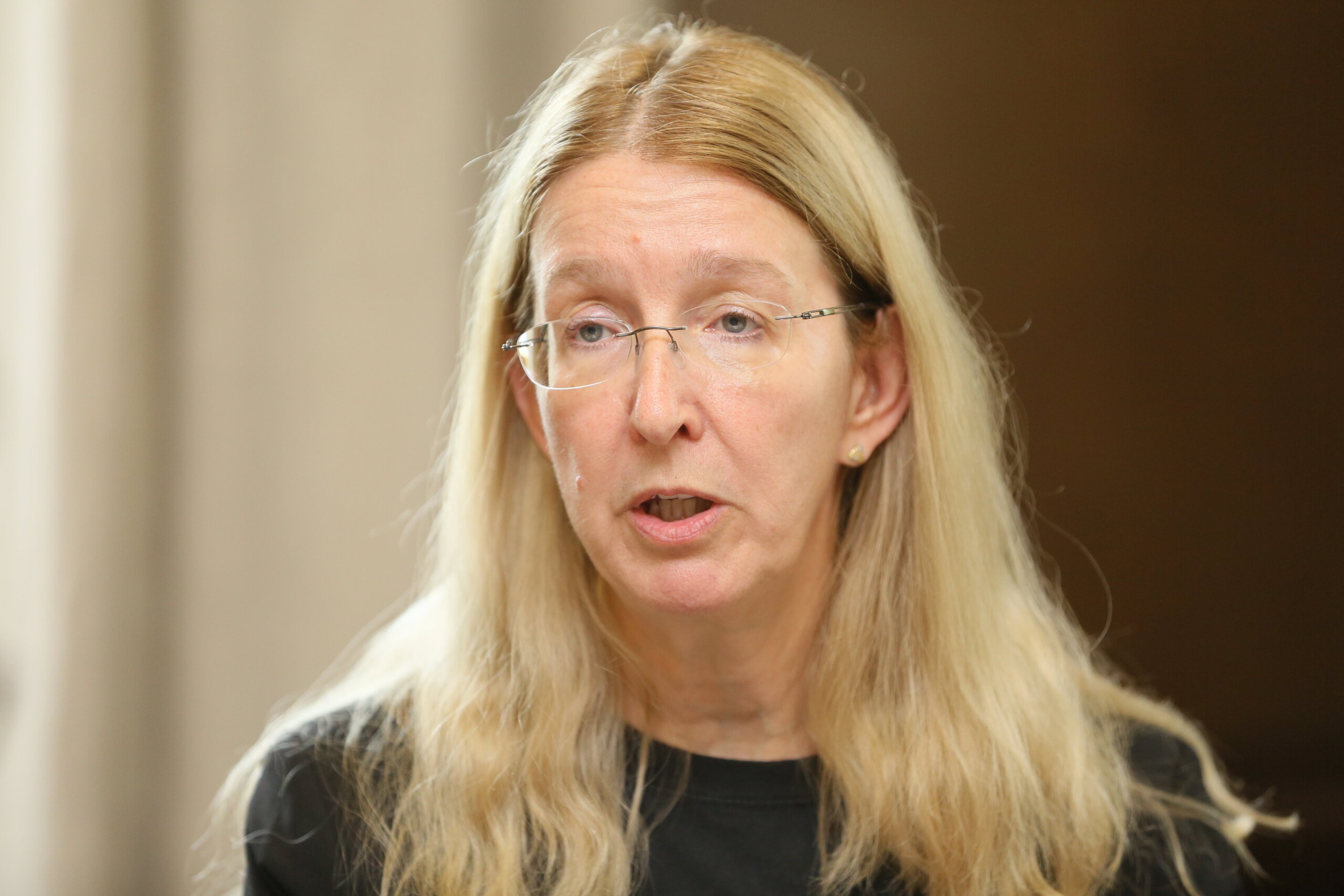


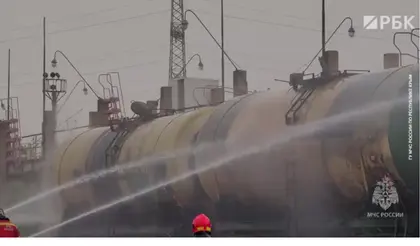

Comments (0)